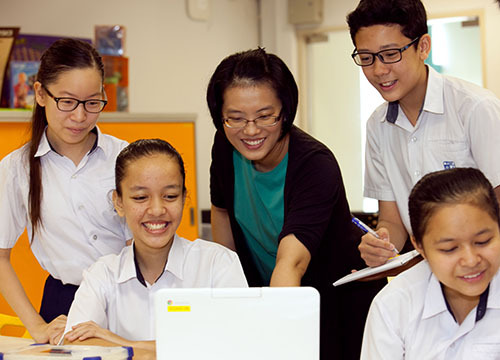
Just imagine schools decades from today – איך הם יהיו?
פאק טי נג הוא דיקן עמית, למידה מנהיגות, וראש הקבוצה האקדמית מדיניות והמנהיגות במכון הלאומי לחינוך (NO), אוניברסיטה הטכנולוגית נניאנג (NTU), סינגפור. He teaches in the programmes for school leaders (Principal-ship and Head-of-Department-ship), postgraduate programmes for research candidates (לִשְׁלוֹט, EdD and PhD) and in the foundation programmes for trainee teachers. He has been a frequent contributor to גלובל החיפוש לחינוך. It is our great pleasure to welcome him back to share his perspectives on schools in the future.
Just imagine, Pak Tee, איך בית הספר של העתיד יהיה יותר מודע לסביבה?
בחודש דצמבר 2015, many nations around the world gathered in Paris and came to a historic agreement to commit to ways in which the world could address climate change. Global climate change is a serious issue that affects everybody. לכן, I envisage that environmental issues will be featured quite prominently in future curricula. Students will discuss these issues from the perspective of science, geography or social studies, and how they could protect the environment. They will be involved in environmental protection projects to raise awareness among people or find possible solutions. לדוגמא, בסינגפור, there are workshops in various schools to help students appreciate various environmental issues and equip them with skills for them to be advocates of environmental protection among their friends, families and in the community. בתי הספר השנתיים בסינגפור נקיים וירוקים’ הקרנבל מעודד תלמידים, teachers and partners in education to showcase their projects that protect the environment. There is also a School Green Awards (SGA) program that promotes awareness of environmental issues and conservation. This has attracted the participation of many students from primary schools, secondary schools, junior colleges, אוניברסיטאות, polytechnics and institutes of technical education. These efforts promote awareness among young people to be more environmentally conscious.
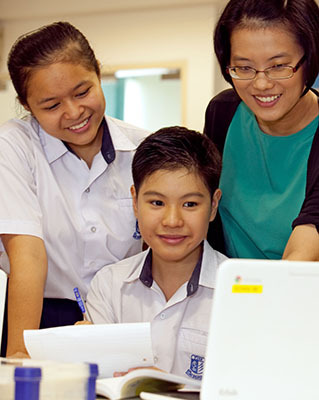
איך בית הספר של העתיד יהיה יותר גלובלי כלול?
As the world becomes more globalized, schools will educate students who come from different parts of the world. לכן, schools will have to become more globally inclusive. In school, students will have to learn to understand and appreciate different cultures. They will have to learn how to interact with people who are very different from themselves in a mutually respectful way. למעשה, one of the competencies in Singapore’s 21st century competencies framework is civic literacy, global awareness and cross-cultural skills. One of the key educational messages in Singapore is racial harmony. Each year on 21st July, schools observe the Racial Harmony Day, to mark Singapore’s 1964 race riots, and to remind students of the importance of respecting all races and living harmoniously together. In some schools, students are encouraged to turn up for their classes dressed in ethnic costumes. Schools make the effort to remind students to understand and appreciate one another’s culture better.
How will technology be integrated into the curriculum and how will schools handle the integration of continual advancements in technology?
As technology advances and becomes more pervasive in our lives, it is inevitable that schools will have to keep up with technology simply because that is how work is done and how people communicate. אז, the challenge is not about the integration of technology in school. במקום זאת, it is about how technology can be used to enhance the quality of teaching and learning. The focus should not be on how sophisticated a technological tool is. The focus should be on pedagogy and how technology can be used to enhance an existing pedagogy or enable a new and superior pedagogy.
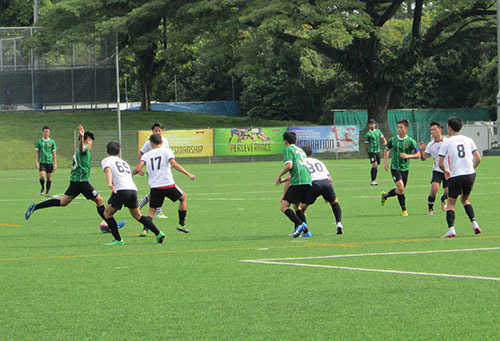
מה יישאר מעבודת מלאכה מסורתית וכתיבה?
Traditional craft work will be more valued than before because most products will be made by machines. לכן, expert craftsmanship that produces high quality or bespoke products will command a premium. Low skilled or poor quality craft work will be replaced by machine-made products. Writing will still be essential as language is the means of communication among people. The challenge in the future could be the decline of the general quality of handwriting or spelling. We are using keyboards and relying on automatic spell checks too often.
בהתחשב ביעילות של הלמידה באינטרנט והבית, how much time will be needed in school?
I believe students will still go to school for roughly the same amount of time. School is a place not just for acquiring knowledge but to learn soft skills such as communication, teamwork as well as important life skills. עם זאת, lesson time in school will be more fruitfully used for deep discussions rather than merely information download.
עד כמה חשוב תהיה הנוכחות של מורים פיזיים להיות?
The presence of physical teachers will be more important than ever before. In the Internet age, there will be a lot of information and misinformation that students can get through the virtual medium. They need skillful teachers to help them process this large amount of material and distinguish good information from misinformation. Teachers have to help students learn how to synthesize information as well as to create useful knowledge and applications. הכי חשוב, teachers need to guide students in the area of cyber-wellness and cyber-ethics.
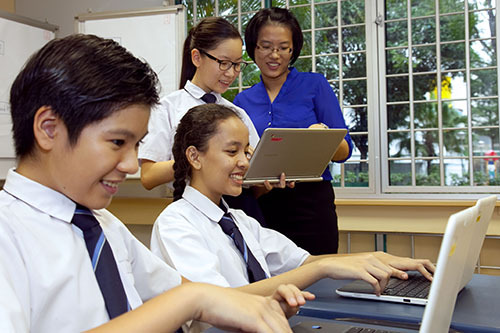
יוביל קידום טכנולוגיה לקידום אישי של חינוך לתלמידים בודדים או שזה יהיה גם להגדיל את צורך טכנו-ביורוקרטי לתקינה?
Paradoxically, technology advancement will lead to further personalization of education to individual students as well as increase the techno-bureaucratic need for standardization. Technology will lead to personalization of education because it enables anytime, anywhere and customized learning modules. עם זאת, because the quality of online learning modules can be so varied across different platforms, employers will still need some ways of knowing whether the learning through such online modules has been substantial. Learners will also want a proof of the worth of their learning. לכן, there will still be a demand for some level of standardization and even certification.
האם אנו מלמדים את התלמידים ספציפיים “נושאים” בכיתות מסורתיות כמו שיש לנו היום או כיתות יותר על למידה / היברידית משולבת?
כן, we will still be teaching students “נושאים”. The division of knowledge into “נושאים” is a way of organizing learning. עם זאת, the knowledge domain of each “subject” will change. Some may even be re-defined. כמו כן, within a learning program, there will be a lot more integrated and hybrid learning, using real world situations and emphasizing authentic applications. לדוגמא, בסינגפור, we are implementing a new integration in our health and sports curriculum. Health education and sports are taught to children in an integrative way by connecting health concepts and sporting activities. In playing a sport, students learn about nutrition, hygiene and safety, and plan a fitness program for themselves to enable them to play that sport and stay healthy. דוגמא נוספת – in a local secondary school, מוּסִיקָה, English and Literature are integrated in a fusion program that allows students to learn all three subjects at the same time and culminates in the production of a school musical.
מתמודד עם זמן גובר בילה על התקנים דיגיטליים, איך אנחנו יכולים ללמד את הכישורים מעשיים יותר, כולל התמודדות עם רמות לחץ וקונפליקט בין-אישי?
בסינגפור, we emphasize social emotional learning for young people. Teachers guide students to develop their inner world and to learn how to handle themselves, interact with others, and lead a well-balanced life. Within the curriculum of social emotional learning, coping with stress and handling interpersonal conflicts are part of the critical learning that students should go through. In these areas, teachers serve as advisors, mentors or life coaches.
תמונות 1, 2 ו 4 are courtesy of the Yusof Ishak Secondary School. תמונה 3 (soccer game) is courtesy of Pak Tee Ng.
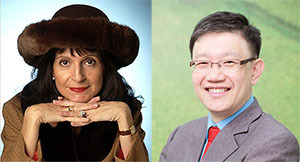

הצטרף אליי ולמנהיגי מחשבה מוכרת בעולם כולל סר מייקל ברבר (בריטניה), DR. מיכאל בלוק (ארה"ב), DR. ליאון בוטשטיין (ארה"ב), פרופסור קליי כריסטנסן (ארה"ב), DR. לינדה דרלינג-Hammond (ארה"ב), DR. MadhavChavan (הודו), פרופ 'מיכאל Fullan (קנדה), פרופ 'הווארד גרדנר (ארה"ב), פרופ 'אנדי הארגריבס (ארה"ב), פרופ 'איבון הלמן (הולנד), פרופ 'קריסטין Helstad (נורווגיה), ז'אן הנדריקסון (ארה"ב), פרופ 'רוז Hipkins (ניו זילנד), פרופ 'קורנליה הוגלנד (קנדה), הכבוד ג'ף ג'ונסון (קנדה), גברת. שנטל קאופמן (בלגיה), DR. EijaKauppinen (פינלנד), מזכיר המדינה TapioKosunen (פינלנד), פרופ 'דומיניק לפונטיין (בלגיה), פרופ 'יו לאודר (בריטניה), לורד קן מקדונלד (בריטניה), פרופ 'ג'ף מאסטרס (אוסטרליה), פרופ 'בארי McGaw (אוסטרליה), שיב נדאר (הודו), פרופ 'R. נטריגין (הודו), DR. PAK NG (סינגפור), DR. דניז אפיפיור (ארה"ב), שרידהר ךאג'גופלן (הודו), DR. דיאן ראוויטש (ארה"ב), ריצ'רד וילסון ריילי (ארה"ב), סר קן רובינסון (בריטניה), פרופ Pasi Sahlberg (פינלנד), פרופ Manabu סאטו (יפן), אנדריאס שלייכר (PISA, OECD), DR. אנתוני סלדון (בריטניה), DR. דוד שפר (ארה"ב), DR. קירסטן Immersive Are (נורווגיה), קנצלר סטיבן ספאן (ארה"ב), איב Theze (LyceeFrancais ארה"ב), פרופ 'צ'רלס Ungerleider (קנדה), פרופ 'טוני וגנר (ארה"ב), סר דייוויד ווטסון (בריטניה), פרופסור דילן Wiliam (בריטניה), DR. מארק Wormald (בריטניה), פרופ 'תיאו Wubbels (הולנד), פרופ 'מייקל יאנג (בריטניה), ופרופ 'Minxuan ג'אנג (סין) כפי שהם לחקור שאלות חינוך תמונה הגדולות שכל המדינות מתמודדות היום.
גלובל החיפוש לחינוך עמוד קהילה
C. M. רובין הוא המחבר שתי סדרות מקוונות רבים קוראות שלהיא קיבלה 2011 הפרס אפטון סינקלר, “גלובל החיפוש לחינוך” ו “איך וויל אנחנו קראו?” היא גם מחברם של שלושה ספרים רבי מכר, כולל אליס בארץ הפלאות Real, הוא המוציא לאור של CMRubinWorld, והוא משבש קרן עמית.
עקוב C. M. רובין בטוויטר: www.twitter.com/@cmrubinworld

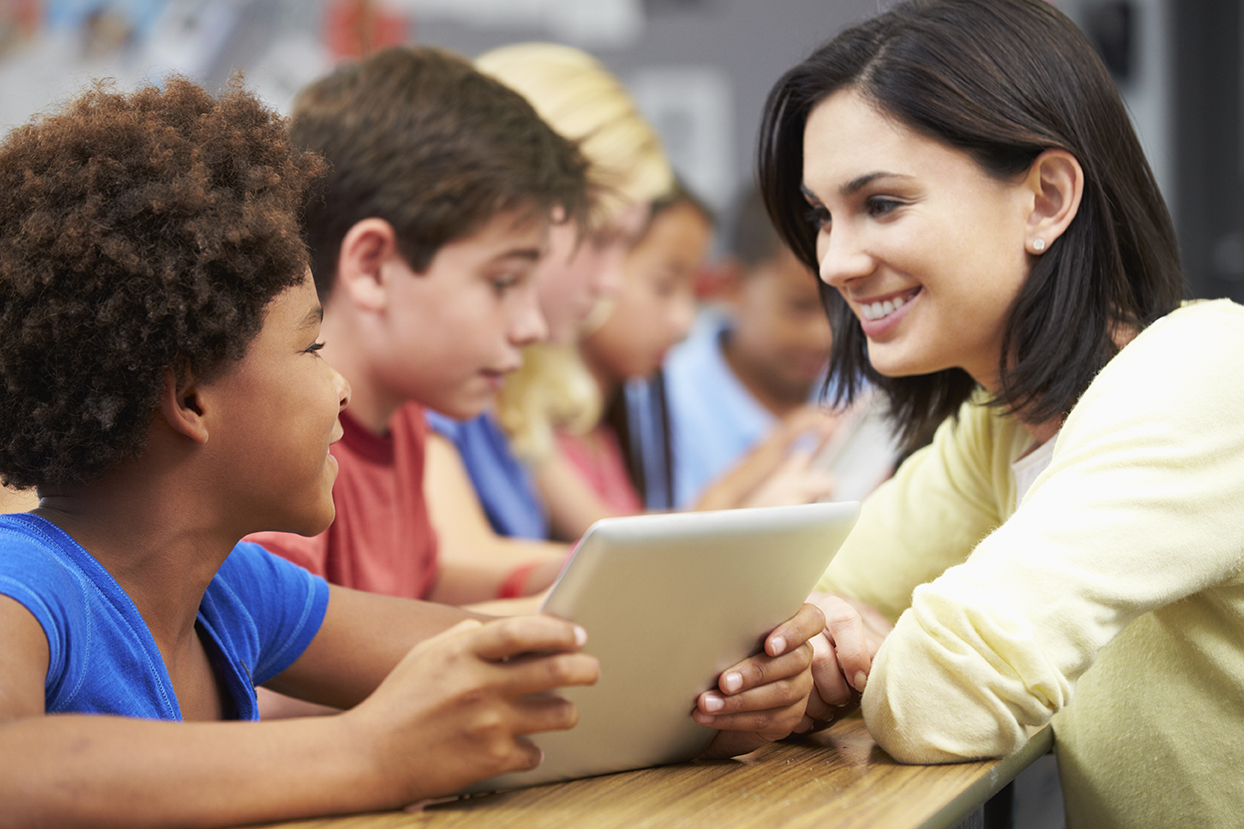
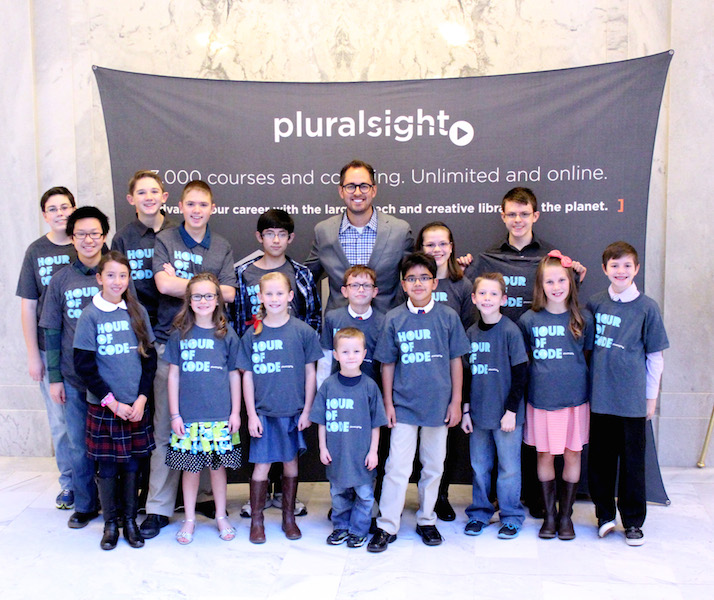
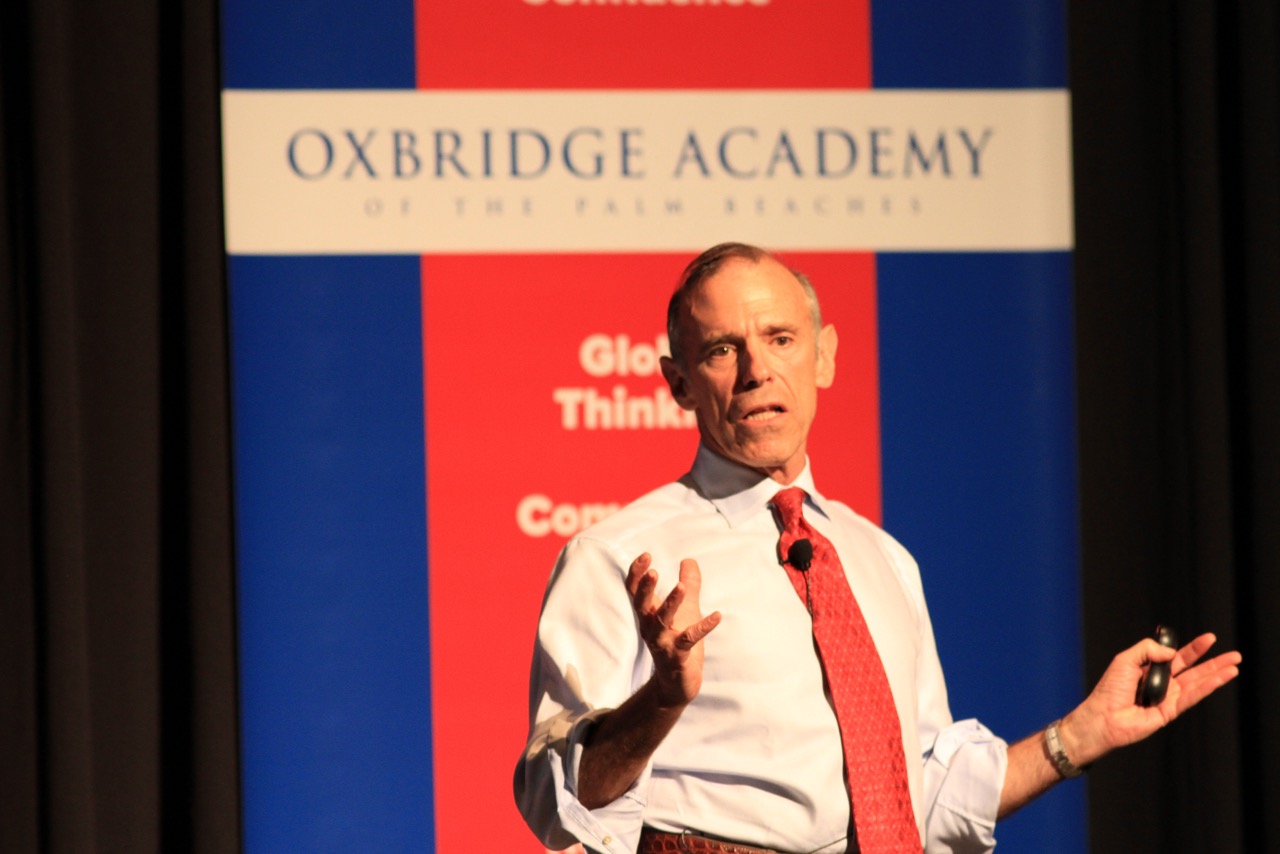
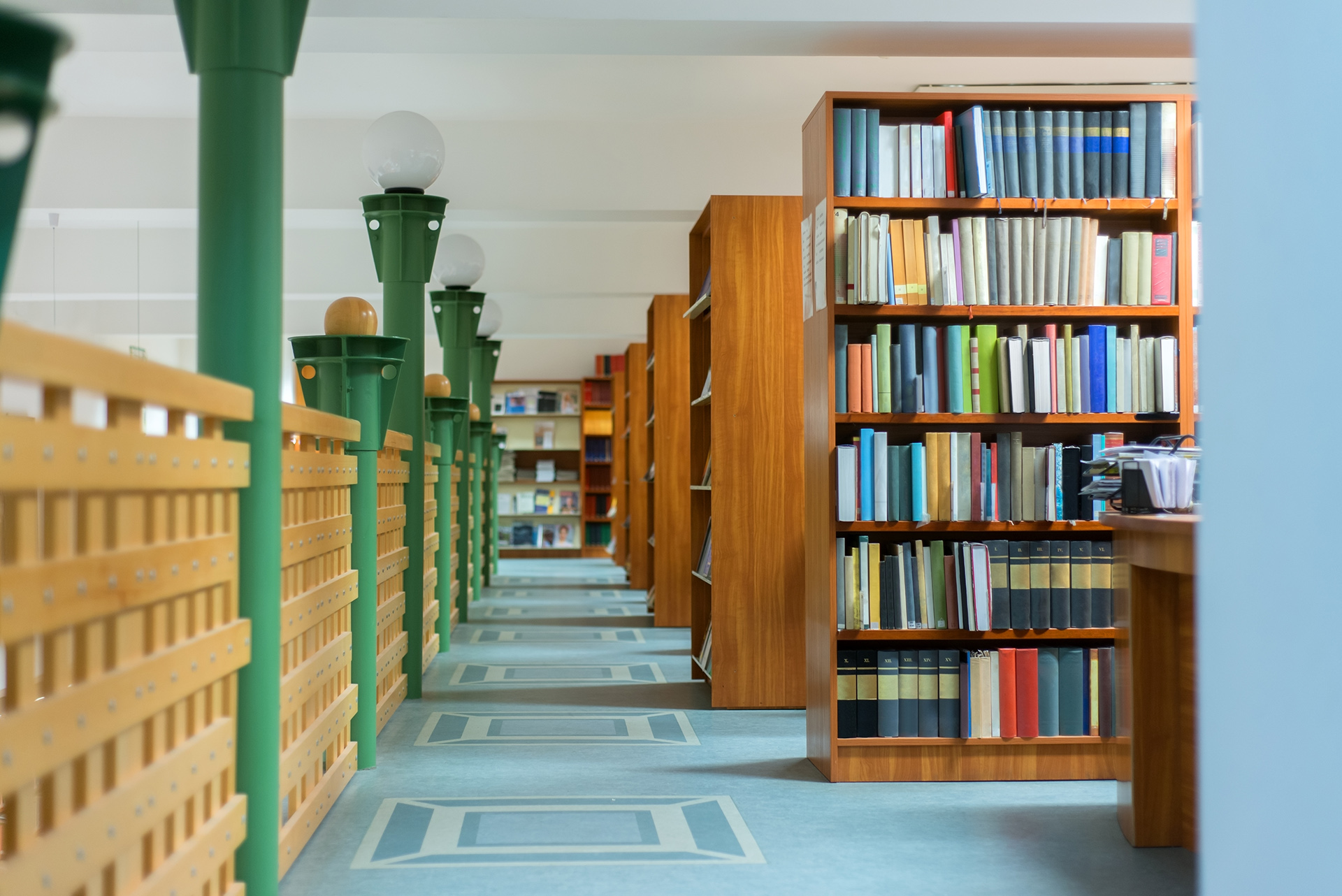
תגובות אחרונות